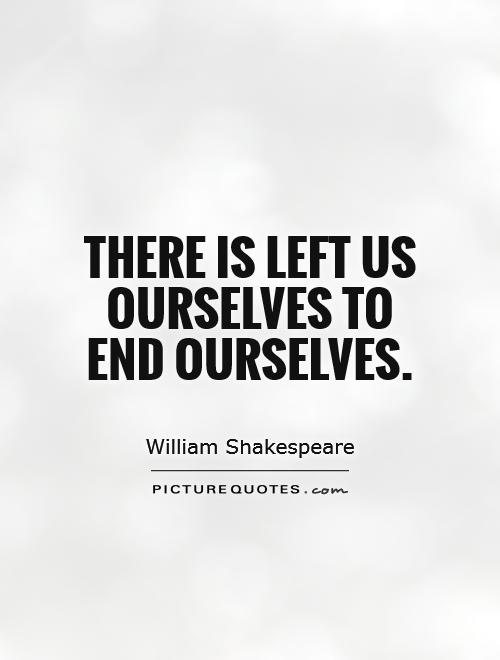There is left us ourselves to end ourselves

There is left us ourselves to end ourselves
The phrase "There is left us ourselves to end ourselves" is a powerful and thought-provoking line from William Shakespeare's play "Julius Caesar." In this context, the line is spoken by Brutus, one of the conspirators who has just participated in the assassination of Julius Caesar. The line reflects Brutus's realization that the consequences of their actions will ultimately lead to their own downfall.Brutus is expressing the idea that they have taken matters into their own hands and have sealed their fate by committing such a drastic and irreversible act. By killing Caesar, they have set in motion a chain of events that will ultimately lead to their own destruction. The line also conveys a sense of resignation and acceptance of the consequences of their actions.
The phrase can be interpreted in a broader sense as well, beyond the context of the play. It speaks to the idea that ultimately, we are responsible for our own actions and decisions. We have the power to shape our own destinies and determine our own fates. In the end, we are the ones who have the power to either build ourselves up or tear ourselves down.
This line also reflects Shakespeare's recurring themes of fate, free will, and the consequences of one's actions. Throughout his works, Shakespeare explores the idea that individuals have the power to shape their own destinies, but that ultimately, fate may also play a role in determining the outcome of events.












 Friendship Quotes
Friendship Quotes Love Quotes
Love Quotes Life Quotes
Life Quotes Funny Quotes
Funny Quotes Motivational Quotes
Motivational Quotes Inspirational Quotes
Inspirational Quotes